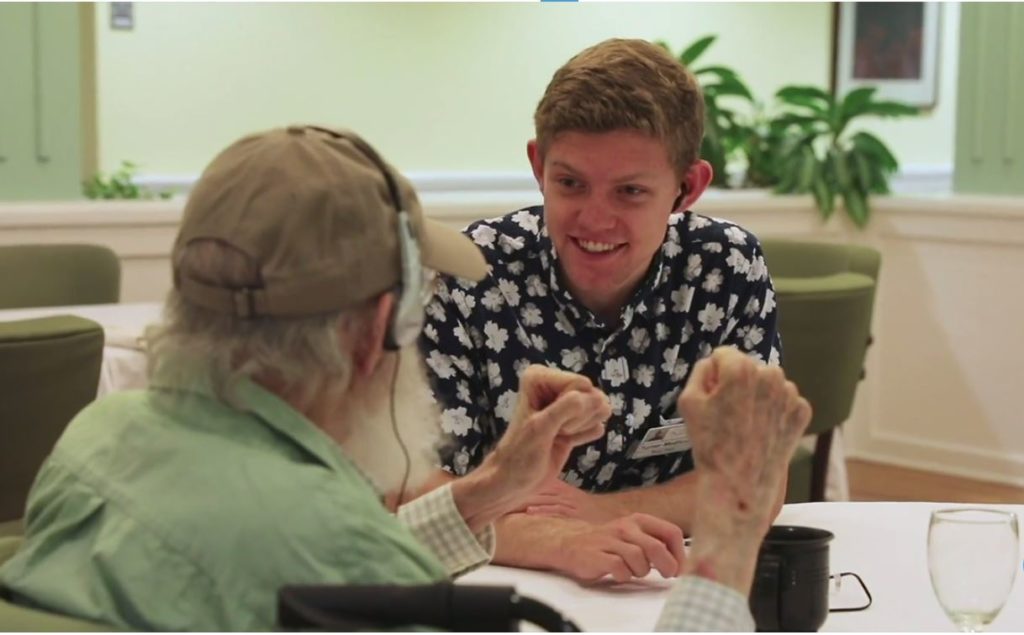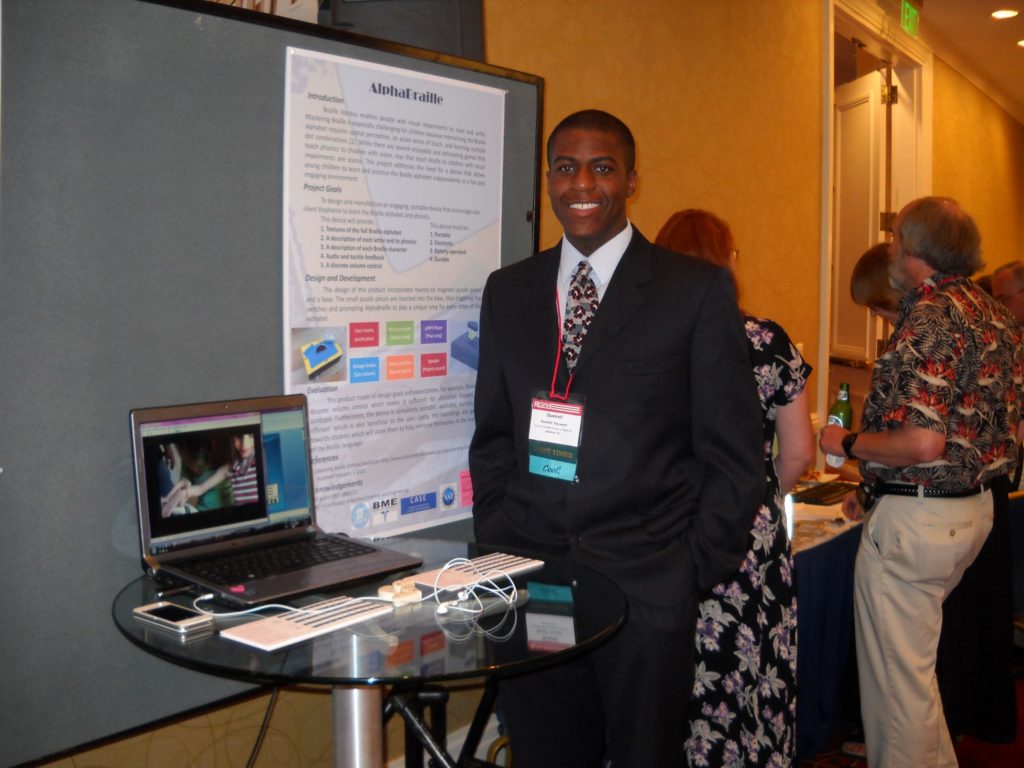UNC-Chapel Hill Chancellor Carol L. Folt welcomed renowned physicist Stephen Hawking in front of a sold-out crowd at the Hawking Radiation Conference in Stockholm, Sweden, on Monday. Hawking’s public lecture was an early highlight of the historic gathering of the world’s most accomplished physicists.
“As the leader of a university charged with opening the minds of students every day, I deeply appreciate what Professor Hawking has done to pull the cosmos closer to so many,” Folt said at the Stockholm Waterfront Congress Centre. Carolina is co-sponsor of the conference.
In his nearly hour-long remarks Monday titled “Quantum Black Holes,” Hawking spoke about one of the most complex questions facing physics today: how to resolve the paradox between Einstein’s theory of gravity, which predicts the loss of physical information in the formation of black holes, and a fundamental law of quantum theory, which states that no information about the physical state of anything can ever disappear from the universe.

Hawking is the Dennis Stanton Avery and Sally Tsui Wong-Avery Director of Research in the Department of Applied Mathematics and Theoretical Physics at the University of Cambridge. He has dedicated his career to researching black holes and told the crowd he plans to reveal a new theory about them during this week’s gathering.
He hinted that information might not disappear from black holes after all. “Black holes ain’t as black as they are painted,” Hawking quipped. “They are not the eternal presence they were once thought. Things can get through a black hole, both through the outside and possibly through another universe. So, if you feel you are in a black hole, don’t give up, there is a way out.”
The Hawking Radiation Conference is co-sponsored by UNC-Chapel Hill, along with the Nordic Institute of Theoretical Physics (Nordita), co-hosted by KTH Royal Institute of Technology and Stockholm University; the Centre for Theoretical Cosmology at the Department of Applied Mathematics and Theoretical Physics at the University of Cambridge; and The Julian Swinger Foundation. The gathering began Monday and runs through August 29. The conference is bringing together some of the world’s most accomplished theoretical physicists to discuss the question of whether singularities in black holes exist and whether Hawking Radiation has bearing on their existence.
Laura Mersini-Houghton, associate professor of theoretical physics and cosmology in the College of Arts and Sciences at UNC-Chapel Hill whose work on black holes spurred new discussion among physicists, initiated the conference to continue the conversation.

Earlier in the day, Hawking singled out Mersini-Houghton on his Facebook page, thanking his friend and colleague “for bringing this event together.”
Among those joining Folt and Mersini-Houghton in Stockholm as part of the delegation from Carolina are Ron Strauss, Executive Vice Provost and Chief International Officer; David Routh, Vice Chancellor for Development; Kevin Guskiewicz, Senior Associate Dean for Natural Sciences in the College of Arts and Sciences; and Jack Ng, Kenan Professor of Physics and Astronomy in the College of Arts and Sciences.
“I’m so proud of being part of a university that’s able to help contribute to this type of conference, where great advances in theoretical physics are likely to take place,” Folt said.
Story and video by Rob Holliday, Office of Communications and Public Affairs




